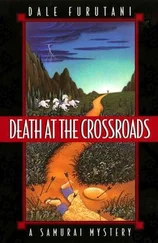Dale Furutani - Kill the Shogun
Здесь есть возможность читать онлайн «Dale Furutani - Kill the Shogun» весь текст электронной книги совершенно бесплатно (целиком полную версию без сокращений). В некоторых случаях можно слушать аудио, скачать через торрент в формате fb2 и присутствует краткое содержание. Год выпуска: 2011, ISBN: 2011, Жанр: Исторический детектив, на английском языке. Описание произведения, (предисловие) а так же отзывы посетителей доступны на портале библиотеки ЛибКат.
- Название:Kill the Shogun
- Автор:
- Жанр:
- Год:2011
- ISBN:0688158196
- Рейтинг книги:3 / 5. Голосов: 1
-
Избранное:Добавить в избранное
- Отзывы:
-
Ваша оценка:
- 60
- 1
- 2
- 3
- 4
- 5
Kill the Shogun: краткое содержание, описание и аннотация
Предлагаем к чтению аннотацию, описание, краткое содержание или предисловие (зависит от того, что написал сам автор книги «Kill the Shogun»). Если вы не нашли необходимую информацию о книге — напишите в комментариях, мы постараемся отыскать её.
Kill the Shogun — читать онлайн бесплатно полную книгу (весь текст) целиком
Ниже представлен текст книги, разбитый по страницам. Система сохранения места последней прочитанной страницы, позволяет с удобством читать онлайн бесплатно книгу «Kill the Shogun», без необходимости каждый раз заново искать на чём Вы остановились. Поставьте закладку, и сможете в любой момент перейти на страницу, на которой закончили чтение.
Интервал:
Закладка:
The building had no windows facing the street, and in the twenty minutes Kaze took to do his act with the tops, no one entered or left. It was midmorning, and the street was bustling with people conducting their shopping or business. After years of a solitary existence on the road, the swirl of people that made up a typical Edo street was strange to Kaze, but he willed away the distractions and focused his attention on the brothel.
Kaze was in Ningyo-cho, a compact community of Edo, not too far from the construction site of Edo-jo, tucked in the angle of the Sumida River and the Nihonbashi. It was filled with brothels, drinking places, theaters, and other entertainment establishments of various sorts. It also had a great number of the shops that gave the district its name: Doll Town. These dolls were the kind made of porcelain and cloth, and Kaze noted the irony of putting a brothel that apparently specialized in young children in a district where the parents of other, more fortunate, children purchased treasured dolls.
In theory, girls were to be left alone until they were considered women, and they could not be kept in sexual slavery at any age. In fact, there was no organization to see to the welfare of children. If an enterprise like the Little Flower Whorehouse remained low-key and didn’t cause problems for the authorities, it was allowed to function.
Kaze watched the Little Flower for almost an hour. It remained quiet, but that was no surprise because it was a business that operated primarily at night. He didn’t see any tradesmen entering to deliver food and drink, nor did he see anyone leave. Dressed as a street entertainer, he couldn’t just walk into the Little Flower to see if the Lady’s daughter was inside, so he decided to circle the block to see if there was an alley or side street that led to a back entrance.
As he made his way around the block of buildings, he entered a few narrow passages, but they turned out to be private alleys leading to particular businesses and not to the Little Flower. He decided to circle the block once more. Like most of Edo, Ningyo-cho had been hastily reconstructed after the great fire, so it was a confusing jumble of makeshift buildings and permanent structures. Kaze was confident of his ability to detect something as slight as the passage of a rabbit on a forest trail, but he wasn’t as certain of his ability to see all the possible crannies in and around city businesses, one of which could turn into a back entrance for the Little Flower.
When he was on the far side of the block, a man walked out of one of the businesses and stopped, looking at Kaze with surprise.
“Samurai-san!” the man exclaimed.
It was Goro, one of two peasants Kaze had met recently. The two men had helped Kaze transport a load of gold for a merchant to Kamakura. At the end of the journey, Kaze had given Goro, and his partner Hanzo, four gold coins, a magnificent reward.
“What are you doing here?” Kaze asked.
Goro puffed out his chest. “I am the proprietor of this business,” he said proudly.
Kaze looked at the curtain above the doorway. All it had was the word “Kabuki.” It was a word Kaze wasn’t familiar with. It seemed to be made up of three kanji: ka , which meant song; bu , which meant dance; and ki , which means skills. Song-dance-skills. It was peculiar.
“And what kind of business is this?” Kaze asked.
“It’s something totally new! You samurai have had Noh plays forever, but Kabuki was just started in Kyoto by Okuni. She was a shrine maiden who used to dance in a riverbed to great crowds. It’s going to really catch on here in Edo. Come in! Come in! We’re in the midst of rehearsals so you can see for yourself.”
Kaze entered the building, curious to see what the peasant had gotten himself into. He found himself in a lobby constructed of rough boards. Goro led Kaze through the small lobby and into the rest of the building. It was a large room. The floor was crisscrossed with low railings, dividing it into sections. Each section had low-quality tatami mats on the floor. At the back of the room was a raised platform that was reminiscent of the platforms used for Noh performances, or by shrine maidens for dancing. Behind the platform was a large curtain with a crudely painted pine tree on it, forming a backdrop.
It was a theater.
Flickering torches illuminated the room, and on the platform a man and a woman were standing. They wore garish kimonos. Kaze was used to the stately refinement of Noh, where the actors were all men. They did wear sumptuous kimonos in Noh, but their faces were covered by masks that indicated what part they were playing. Kaze was surprised by the lack of masks on these players, and he was also surprised at the presence of a woman onstage.
In front of the stage, Hanzo was busy wrapping omusubi , rice balls covered with dried seaweed, in broad, green leaves to protect them. Evidently, Hanzo was in charge of selling snacks to the audience.
“The samurai!” Hanzo said. He dropped everything and rushed to Kaze, genuine pleasure showing on his broad peasant’s face. He gave a deep bow, and Kaze returned the bow with a nod of his head.
“How did you get involved in this place?” Kaze asked Goro.
“After you gave us the money in Kamakura, we decided to come to Edo to have a good time. Hanzo and I argued about it, because he wanted to spend the money on a once-in-a-lifetime binge, and I wanted to start a business so we don’t have to return to our little farm. We decided to compromise. We came to Edo and had a small binge. Before we could complete our binge, we met the former owner of this theater, who offered to sell us this. Hanzo and I argued some more, but we eventually bought it, thanks to the gold you gave us in Kamakura.”
The part about Hanzo and Goro arguing was something Kaze could well believe. The two men argued like an old married couple. The two of them running a business was what Kaze found hard to believe.
“Have you ever run a theater before?”
“No, but the man who sold us the theater company said it’s a gold mine!”
“And why did the mine owner want to give it up?”
Goro looked puzzled. He looked at Hanzo, who simply scratched his head. Kaze sighed. “Never mind. It doesn’t matter.”
“Well, I guess business has been a bit slow. The actors get part of the money the people pay, and they’ve been grumbling about it. I guess many women used to be in the show, but they’re gone now. The only woman we have left is her,” Goro pointed with his chin at the young girl on the stage. “She used to help the other women get dressed, but she says she’s an actress.”
Kaze shared some of the samurai view of morality. It was his heritage. But after years of wandering and countless contacts with peasants and other commoners, he understood that the earthy values of the heimin also had a place in society. Still, Kaze didn’t quite approve of women onstage. He was sure that if this Kabuki got popular, the Tokugawa authorities would eventually ban women completely. As in Noh, the stage was the realm of men, even if they were playing the parts of women.
“In fact, that girl, Momoko, is helping us to build up business for the theater.”
“How?”
“We’re going to hand out leaflets to tell people about our big show. We had a woodblock cut with the information about our theater.”
“What did it say?”
Goro looked sheepish. “I don’t know. I can’t read. I just had a woodblock man put down what he thought would get people to the show.”
Kaze shook his head. Kaze wondered how many potential patrons couldn’t read, either. Goro and Hanzo didn’t seem prepared for any business venture.
The couple onstage seemed done with their rehearsals. The girl came off the stage and walked to Goro and Hanzo, apparently wanting to discuss something. In her tight kimono, she walked with the tiny, shuffling steps dictated by the wrapped cloth. Kaze judged her to be in her midteens. She used a wig and some makeup to look older, but her youthful features couldn’t be masked. She was not pretty. She had a tiny pug nose, a mouth that was too wide, and a short neck; the exact opposite of classical beauty, which called for a straight nose, a small mouth, and a long, swanlike neck.
Читать дальшеИнтервал:
Закладка:
Похожие книги на «Kill the Shogun»
Представляем Вашему вниманию похожие книги на «Kill the Shogun» списком для выбора. Мы отобрали схожую по названию и смыслу литературу в надежде предоставить читателям больше вариантов отыскать новые, интересные, ещё непрочитанные произведения.
Обсуждение, отзывы о книге «Kill the Shogun» и просто собственные мнения читателей. Оставьте ваши комментарии, напишите, что Вы думаете о произведении, его смысле или главных героях. Укажите что конкретно понравилось, а что нет, и почему Вы так считаете.












